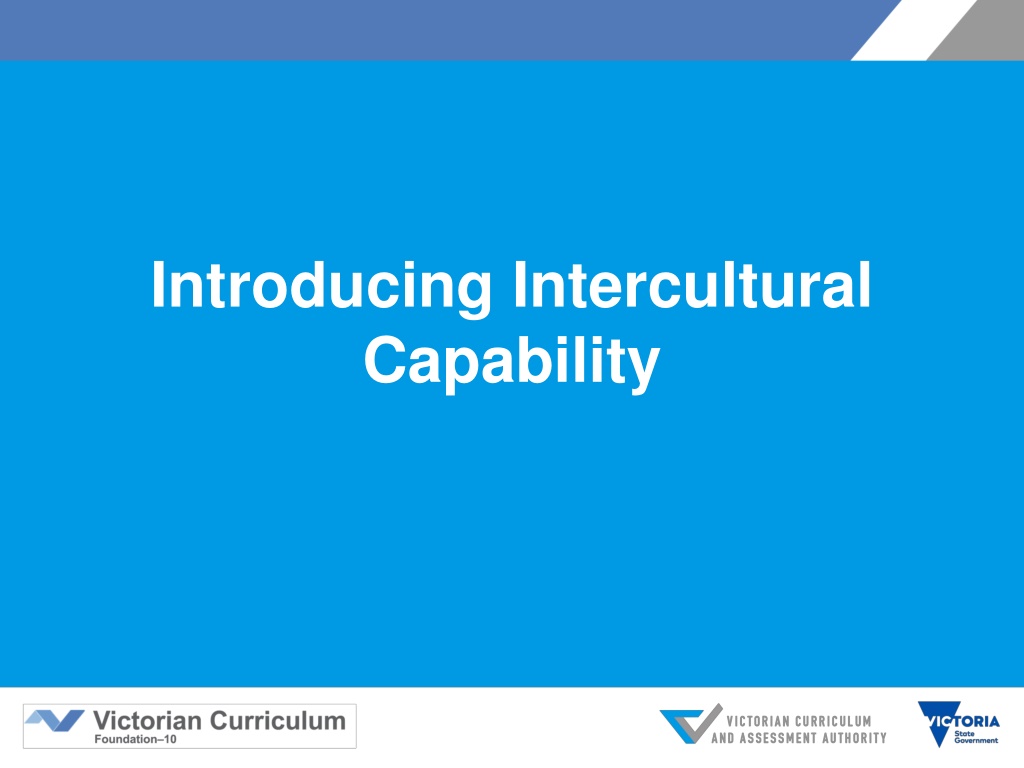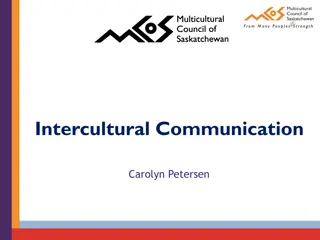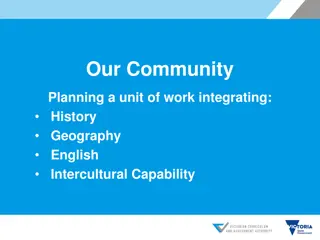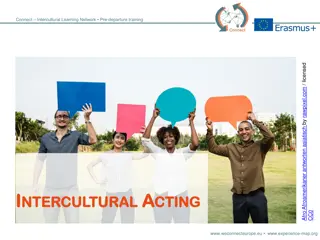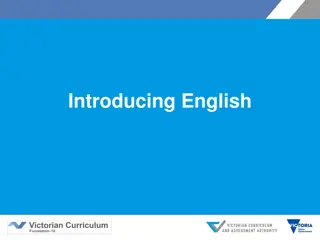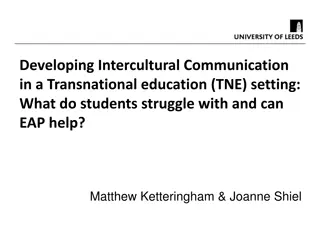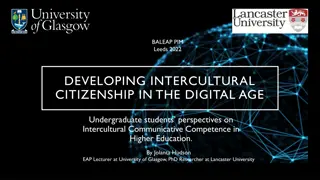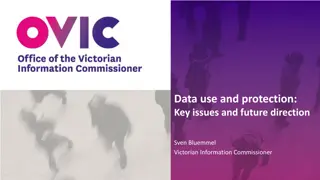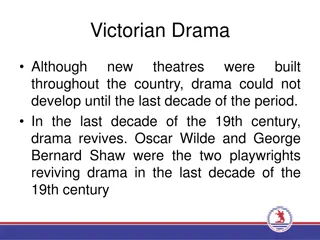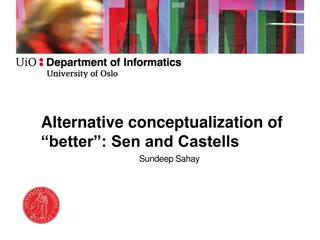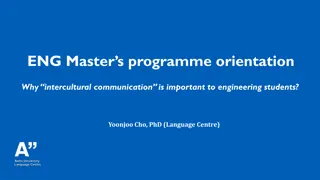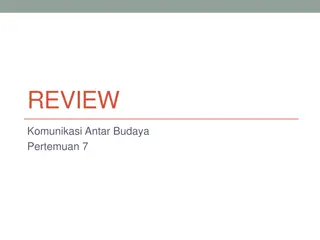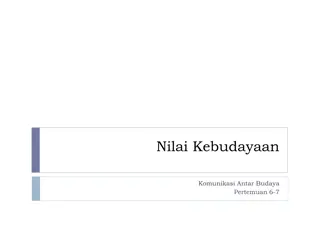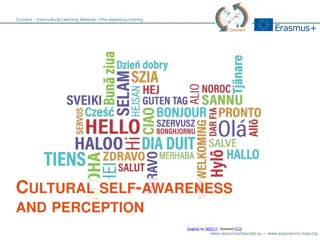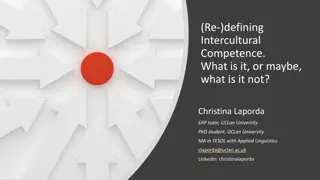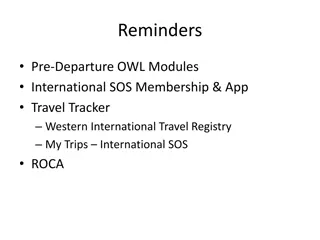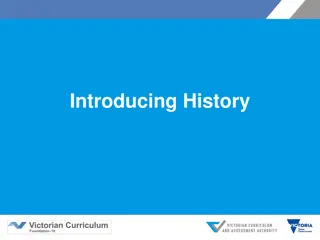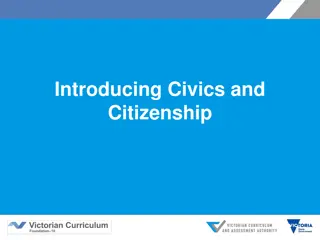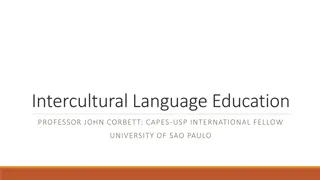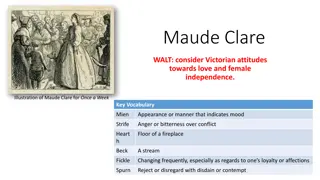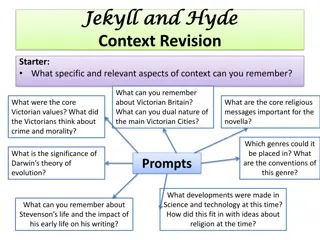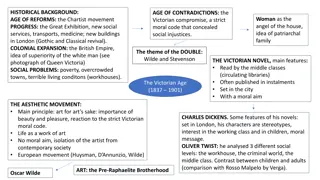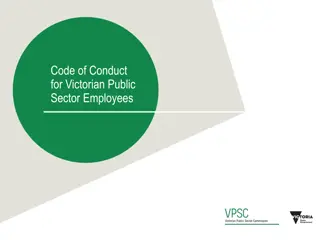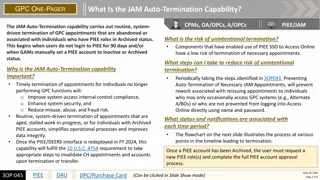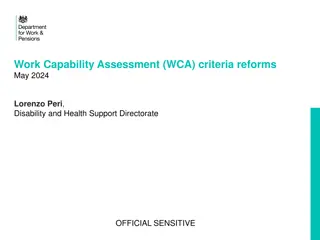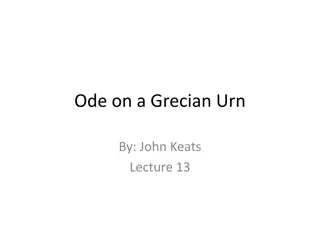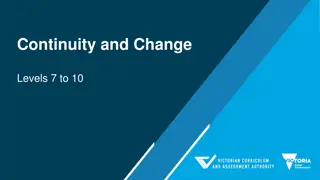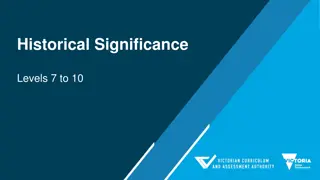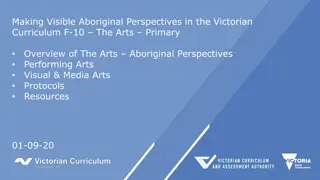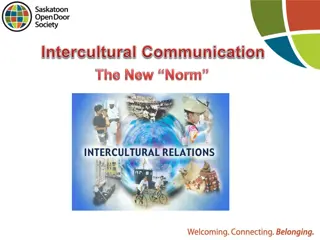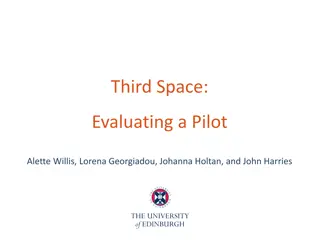Enhancing Intercultural Capability in Victorian Curriculum
Victorian Curriculum F-10, released in 2015, emphasizes intercultural capability to develop students' awareness, respect, and skills in cultural diversity. It aims to foster understanding of different cultures, challenge stereotypes, and promote acceptance for a cohesive community. The curriculum structure includes strands on cultural practices and diversity, with achievement standards at various levels. Key messages highlight the importance of teaching and assessing intercultural capability explicitly to support students in navigating barriers and promoting empathy, openness, and conflict resolution.
- Intercultural Capability
- Victorian Curriculum
- Cultural Diversity
- Education State
- Student Development
Download Presentation

Please find below an Image/Link to download the presentation.
The content on the website is provided AS IS for your information and personal use only. It may not be sold, licensed, or shared on other websites without obtaining consent from the author. Download presentation by click this link. If you encounter any issues during the download, it is possible that the publisher has removed the file from their server.
E N D
Presentation Transcript
Introducing Intercultural Capability
Victorian Curriculum F10 Released in September 2015 as a central component of the Education State Provides a stable foundation for the development and implementation of whole-school teaching and learning programs The Victorian Curriculum F 10 incorporates the Australian Curriculum and reflects Victorian priorities and standards http://victoriancurriculum.vcaa.vic.edu.au/
Aims Intercultural capability aims to develop knowledge, understandings and skills to enable students to: demonstrate an awareness of and respect for cultural diversity within the community reflect on how intercultural experiences influence attitudes, values and beliefs recognise the importance of acceptance and appreciation of cultural diversity for a cohesive community.
Structure Strands Cultural Practices Cultural Diversity Achievement standards The first achievement standard at Foundation to Level 2 and then at Levels 4, 6, 8 and 10.
Key messages Intercultural capability fosters skills that assist students to negotiate across barriers that may arise from differences. Students will examine, reflect on and challenge assumptions, stereotypes and prejudices and explore how intercultural experiences can influence and change attitudes and beliefs. The content needs to be explicitly taught and assessed to support a progression of learning Intercultural capability is strongly connected to those areas of learning concerned with people and their societies, relationships and interactions. Intercultural capability should be read together with the Personal and Social capability knowledge and skills related to empathy, openness, respect and conflict resolution.
